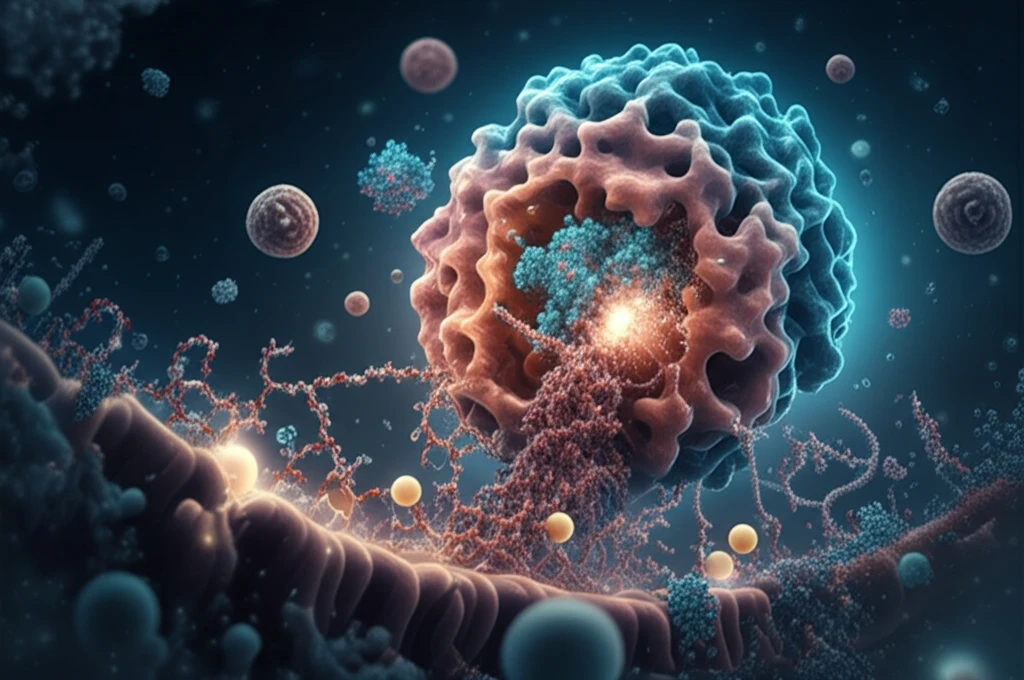
Unlocking Nature's Secrets: How This Mouse Enzyme Could Revolutionize Gut Health
"Discover the surprising transglycosylation activity of mouse acidic mammalian chitinase (AMCase) and its potential impact on gut health and novel treatments."
For years, scientists have been diligently mapping the intricate landscapes of our bodies, seeking to understand the roles of every enzyme, protein, and molecule. Among these microscopic explorers is mouse acidic mammalian chitinase, or AMCase, an enzyme primarily known for its role in breaking down chitin, a substance not naturally found within us. Chitin, abundant in the exoskeletons of insects and the cell walls of fungi, doesn't seem to have much to do with mammalian biology, yet here we are.
Traditionally, AMCase has been studied for its activity in acidic environments, mimicking conditions found in the stomach where it efficiently degrades chitin. However, recent research has unveiled a surprising twist in the tale of AMCase: it exhibits significant activity in neutral conditions, similar to those found in somatic tissues. This unexpected behavior has opened new avenues of exploration, particularly in understanding its role in gut health.
This article delves into the groundbreaking discoveries surrounding AMCase, focusing on its newly found ability to perform transglycosylation—a process where sugar molecules are transferred to create new, complex carbohydrates. This action could be pivotal in understanding and potentially treating various gut-related conditions, offering hope for innovative therapies that leverage the natural capabilities of this enzyme.
The Unexpected Gut Health Revolution: Mouse AMCase

The gut microbiome, a complex ecosystem of bacteria, fungi, and other microorganisms, plays a crucial role in our overall health. Imbalances in this ecosystem can lead to a variety of health issues, including inflammatory bowel disease (IBD), irritable bowel syndrome (IBS), and other digestive disorders. Understanding the mechanisms that maintain this balance is critical, and that’s where AMCase steps into the spotlight.
- Dual Functionality: AMCase acts as both a hydrolase (breaking down chitin) and a transglycosylase (building new structures).
- pH Sensitivity: The enzyme’s transglycosylation activity is notably higher in neutral conditions, typical of the intestines.
- Potential Therapeutic Applications: This unique enzymatic behavior could be harnessed to modulate gut microbiota and treat digestive disorders.
- Somatic Tissue Activity: AMCase exhibits transglycosylation activity in somatic tissues opening doors for new research.
The Future of Gut Health: AMCase as a Key Player
The discovery of AMCase's transglycosylation activity marks a significant step forward in understanding the complexities of gut health. As research continues, the potential applications of this enzyme in treating digestive disorders and modulating the gut microbiome are vast. Envisioning a future where AMCase-based therapies offer relief and improved digestive wellness to countless individuals is becoming more tangible with each new study. This is more than just a scientific finding; it’s a beacon of hope for innovative treatments that could redefine our approach to gut health.
